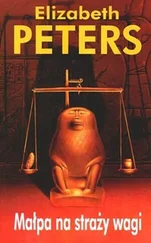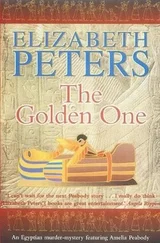She’d come and gone and Schmidt was in the shower and I was about to head for mine when there was a knock at the door. Hotel employees popped in and out all the time, offering small services in return for badly needed small tips, so I assumed it was someone with a vase of flowers or a bowl of fruit. Instead I beheld a woman who was a total stranger. Her wash-and-wear gray pantsuit and low-heeled shoes reminded me of my Aunt Sue’s going-out-for-lunch-with-the-girls outfits. Horn-rimmed glasses framed faded brown eyes, and brownish hair streaked with gray had been pulled back into a bun set off by a coquettish red bow. She was clutching an enormous purse, held in front of her. I half-expected her to ask me to contribute to the local animal shelter or subscribe to Ladies’ Home Journal.
Her eyes tried to see past me. Since I pretty well filled the doorway and she was considerably shorter than I, they did not succeed.
“Yes?” I said, meaning no, what do you want?
She cleared her throat and said in a soft, precise voice. “I would like to speak to Mr. John Tregarth.”
“Sorry,” I said, “he isn’t here.”
“May I ask when you expect him back?”
“I don’t know. That is,” I amended, “you may ask, but I can’t give you an answer.”
“Oh.”
I figured I had been polite enough for one day. This had to be another of John’s ambiguous acquaintances. She didn’t look like a crook, but then the best of them don’t.
“Won’t you come in?” I asked, stepping back and stretching my lips into a smile.
The smile may have been a mistake; it probably showed altogether too many teeth. She shook her head. The red bow bounced. “No, thank you. I—I will come another time.”
“Who the—who are you?” My tone of voice and the hostile stare that accompanied it alarmed her. She jumped back, lifting the purse like a shield. Her eyes, magnified by thick lenses, were wide with alarm. I was afraid she’d start to scream and I’d be arrested for threatening a harmless lady who was twice my age, so I produced a modified version of the smile and said, “I mean—can I help you?”
“No. No, thank you. It is a private matter. But very important. I left a message earlier.”
“Oh, are you…” I couldn’t remember the name.
“If you will be good enough to ask him to telephone me at the Mercure? Thank you. I am sorry to have bothered you. But it is very important.”
I had lied when I had pretended to Saida that I wasn’t worried about John. I was worried and angry and frustrated, and here was a possible lead to his motives if not his current whereabouts. I was almost ready to grab her and drag her into the room and take my chances with the screaming when the portly form of Mahmud, the room steward, came into sight. He was carrying a vase with a pink rose in it.
“Goddamn it,” I said vehemently.
Ms. Whatever let out a ladylike shriek and ran. Mahmud beamed and bowed and offered me the vase. I waved him in. “Put it on the table.”
Schmidt’s suite was at the far end of a long corridor. The unknown personage was still in sight, trotting as fast as she could toward the elevators. Just as well Mahmud had heaved into view, I thought. He had given me time to reconsider my initial impulse.
Across the hall from where I stood, two long flights of stairs led down to the mezzanine of the New Winter Palace lobby, where it was connected to its older neighbor. I made a dash for them, leaving the door open. If I moved fast enough and if the elevator was slow, as it usually was, I might reach the Old Winter Palace lobby before she left.
I went down the stairs at a breakneck pace, hanging on to the rail to keep from falling, and pelted along the corridor that led into the older building, and down the stairs to the lobby.
My first quick glance around the lobby failed to find her. A second, more deliberate glance, also came up empty. I didn’t run, but I walked really fast to the front entrance. From the terrace I had a good view of the street one story below. Conspicuous by its absence was a small figure in a gray pantsuit.
“Goddamn it,” I said.
Continuing the pursuit would probably be a waste of time. Now that I had calmed down, I realized I shouldn’t have pursued at all. After all, I had her name and current address—assuming I could find her original message. I had no idea what had become of it. I ought to have made nice instead of frightening her into flight.
When I got out of the elevator I saw Schmidt standing in the open doorway of the suite, swinging from side to side like a pendulum. He saw me and let out a shout.
“Where have you been? How could you alarm me so? Never do that again. Herr Gott, do you not know better than to open a door when I am not present to defend you?”
I apologized and explained. Schmidt’s eyes narrowed.
“You are starting at shadows, Vicky. This woman, whoever she may be, cannot have anything to do with the Tutankhamon affair or she would not have given you a name and an address. Now come and change. Feisal has just telephoned; he and Saida are joining us for dinner.”
When I emerged from the bedroom, clean and freshly clothed and more or less in my right mind, Saida and Feisal were sitting on the balcony with Schmidt, watching the sunset. Saida was telling us what we were going to do next.
“We begin tomorrow at daybreak,” she declared, waving a piece of paper. “I have made a list of places to be searched.”
I took the list from her. It filled the entire page. “Us and what army?” I inquired. “We can’t go bursting into the headquarters of respectable organizations like the German Institute or—”
“Who said we would burst? We will visit, as colleagues.”
I glanced at Feisal, who avoided my eyes. I couldn’t count on help from him, or from Schmidt, who was bouncing up and down in his chair, delighted at the prospect of active detecting. I was trying to decide whether to throw the cold water of common sense on the scheme or let them amuse themselves when there was a knock at the door.
“Saved by the knock,” I said, and went to answer it.
It was a hotel employee carrying a plastic bag with the logo of one of the expensive shops in the arcade. “For you, lady,” he said, offering me the bag.
Schmidt had rushed to my side, his right hand in his pocket. Visibly disappointed at seeing a harmless messenger instead of a knife-wielding assassin, he withdrew the hand. Instead of a weapon, it held a wad of banknotes.
“Wait a minute,” I said. “That can’t be mine. I haven’t bought anything at Benetton.”
“You ordered it,” the man insisted. “It came to the desk just now.”
Schmidt took the bag and handed over baksheesh.
“It is a present for you, perhaps,” he said, closing the door. “Let us see if there is a note.”
What there was, under a layer of tissue, was a wooden box inlaid with mother-of-pearl. The sort of box you can find at any shop in the suk.
“Oh my God,” I said.
My exclamation brought Saida and Feisal in from the balcony. We stood around the table staring down at the box. I couldn’t bring myself to touch it.
“It is very pretty,” Saida said politely. She reached for the box. Feisal knocked her hand away. His face was an ugly shade of gray. “Let me,” he said hoarsely.
She hadn’t seen the other box, but his reaction and the fixed glares of Schmidt and me were enough to jog her memory. She shied back and raised her hands to her mouth. “Oh, no,” she whispered. “Not another…”
The catch was stiff. Feisal pried it up and removed a layer of cotton wool.
It was a hand, but not the hand of a mummy. By the look of it, the body to which it had been attached had lost it within the past twenty-four hours.
Читать дальше








